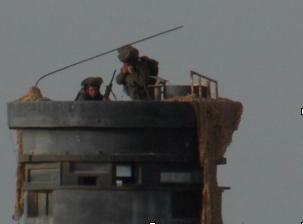Author: ISM Media
-
VIDEO: Children assaulted and 3 women arrested at Nabi Saleh demonstration
21st March 2015 | International Solidarity Movement, Ramallah Team | Nabi Saleh, Occupied Palestine Israeli forces arrested three women in Nabi Saleh and injured several protesters, one with live ammunition, during the village’s weekly Friday protest on March 13. The demonstration was met with the usual military violence as Israeli forces threw stun grenades and fired live ammunition at unarmed and peaceful protesters. After…
-
In Gaza the farmers irrigate the land with their blood
18th March 2015 | Valeria Cortés | Khuza’a, Gaza, Occupied Palestine Tilling the land in Gaza is one of the most dangerous jobs in the world. The Zionist Occupation Forces fire on the peasants and their families while they sow or harvest their own land near the infamous Zionist fence which surrounds Gaza. They also burn their…
-
Statement from the family of Rachel Corrie on the 12th anniversary of Rachel’s stand in Gaza
16th March 2015 |Rachel Corrie Foundation | Today, the twelfth anniversary of our daughter and sister Rachel’s stand and death in Gaza, we find ourselves back where our journey for accountability in her case began – in Washington DC. We have come for meetings at the Department of State and in Congress and, also, to join our…



